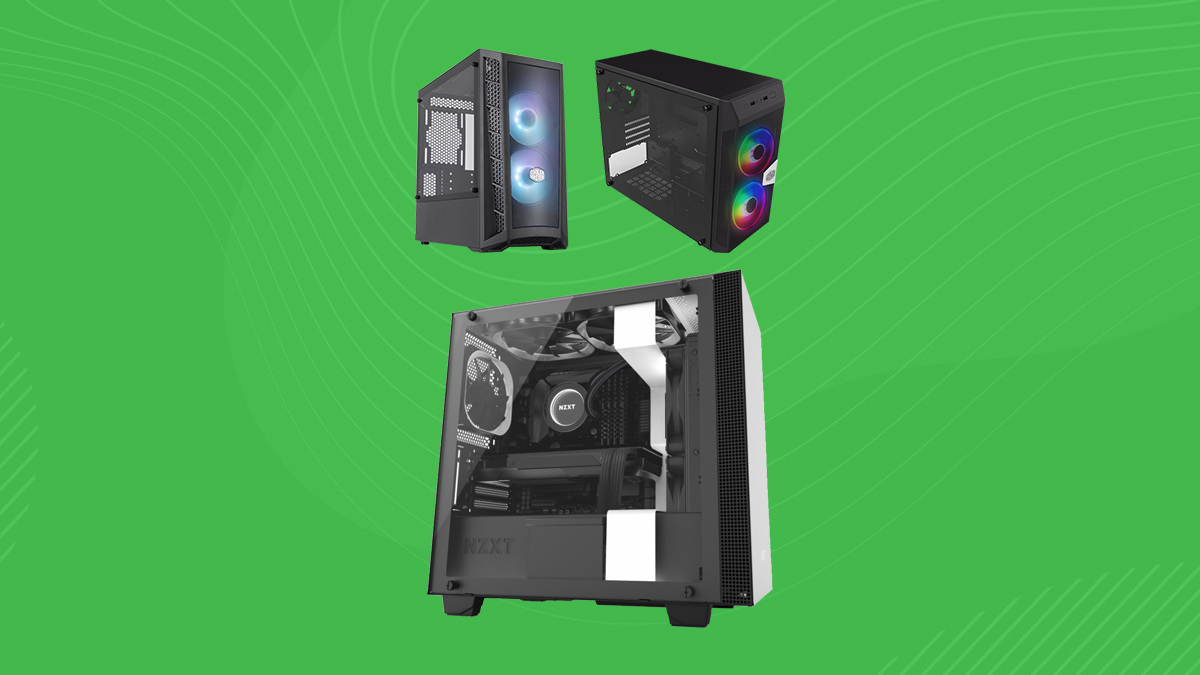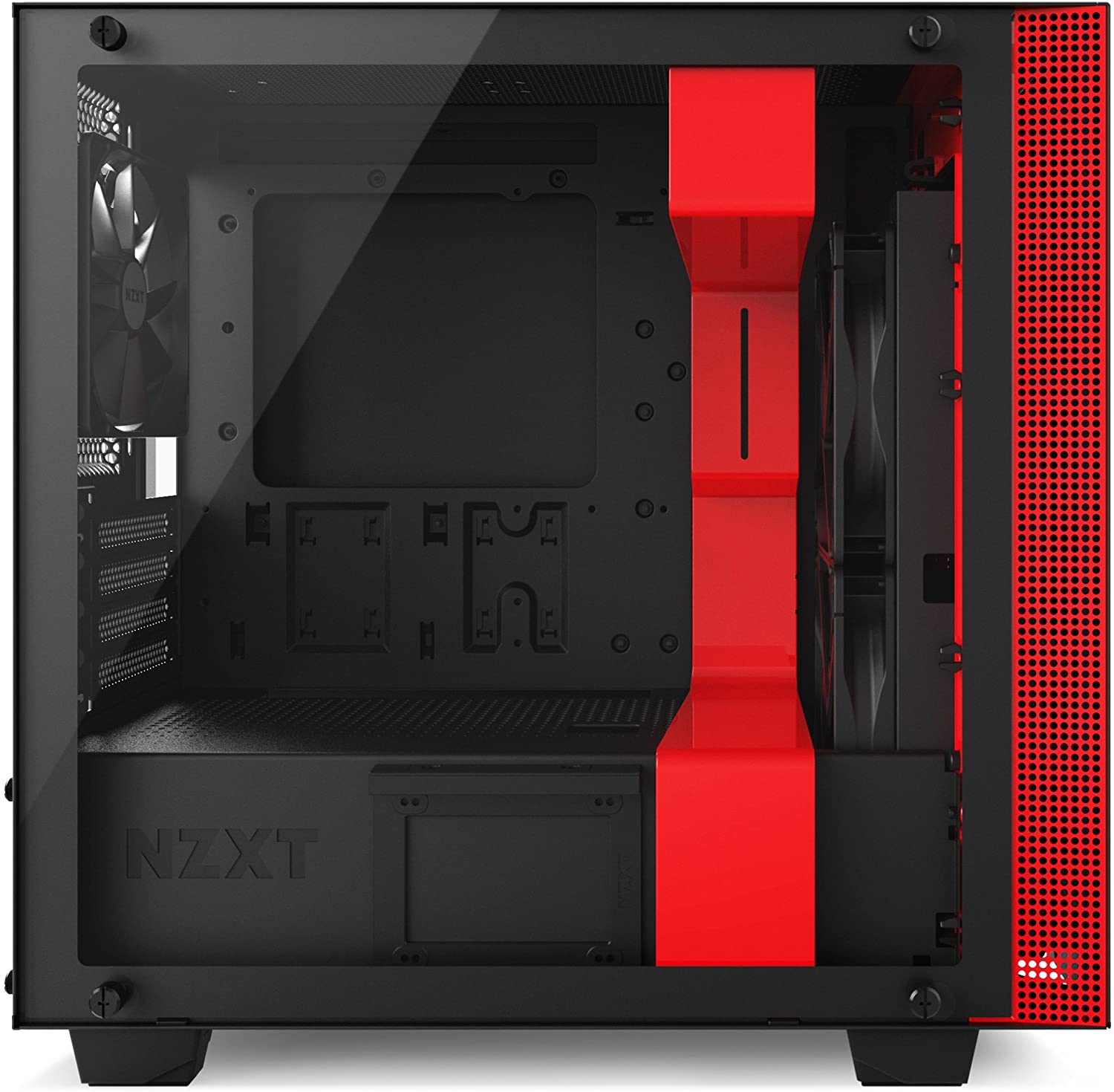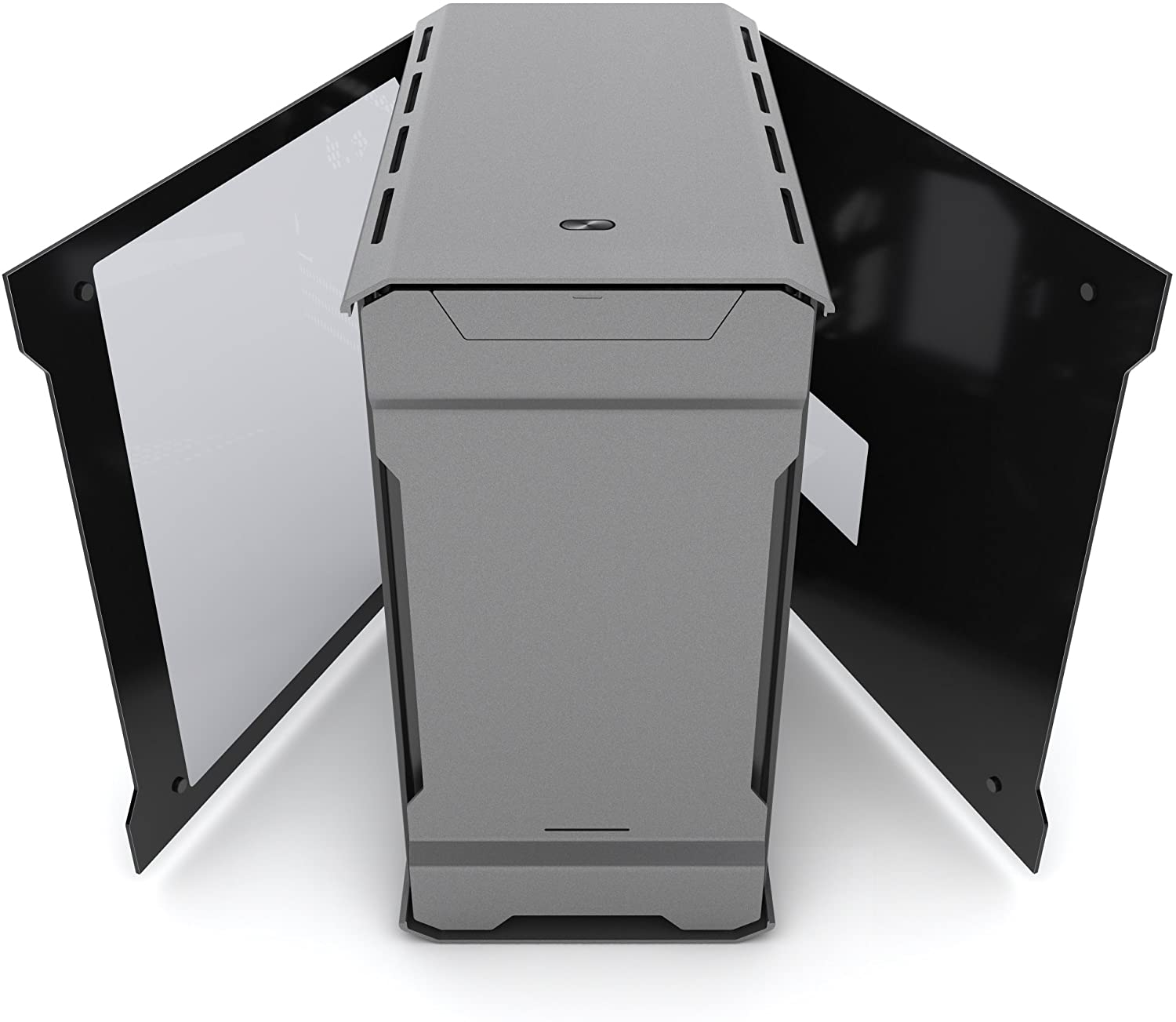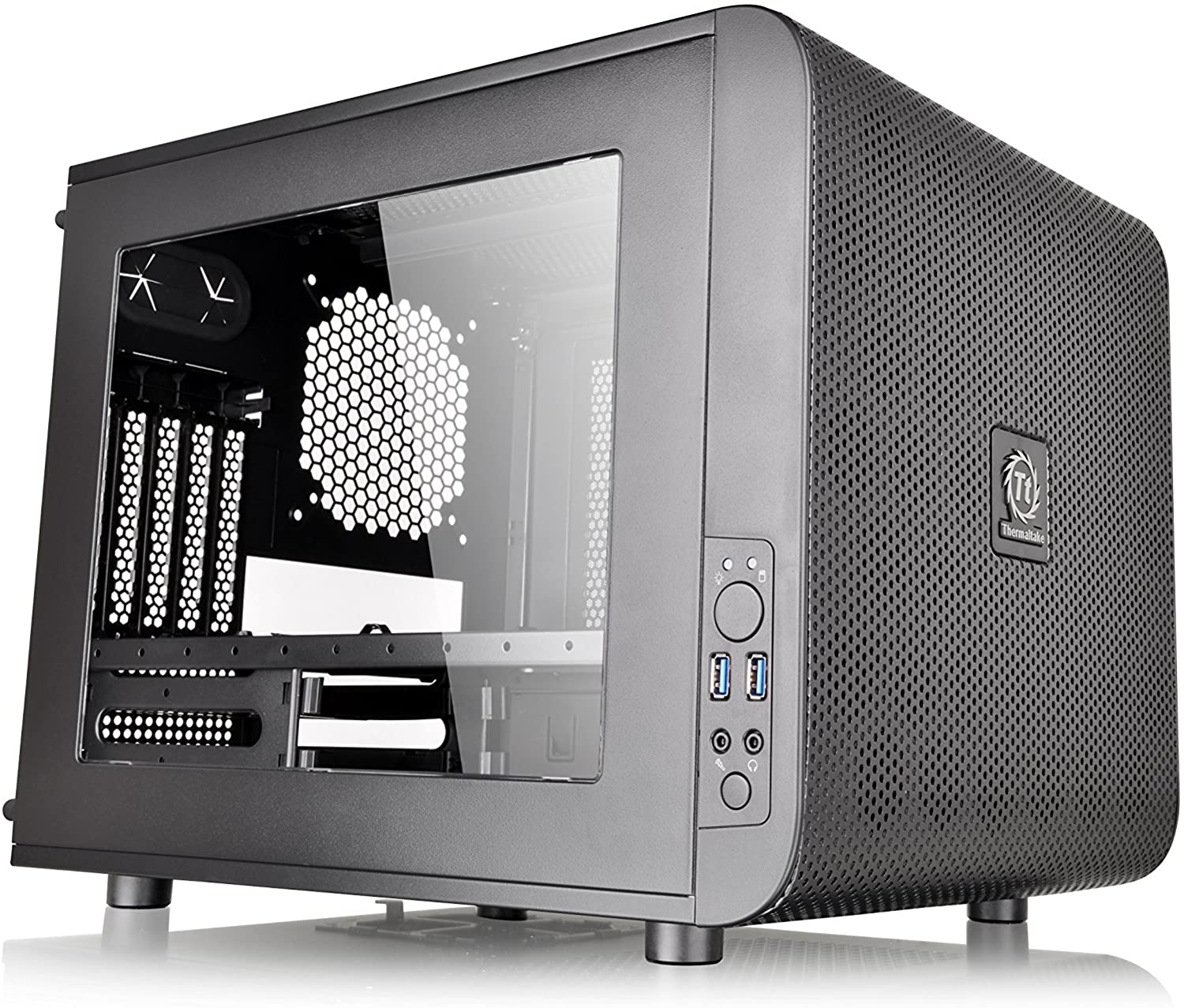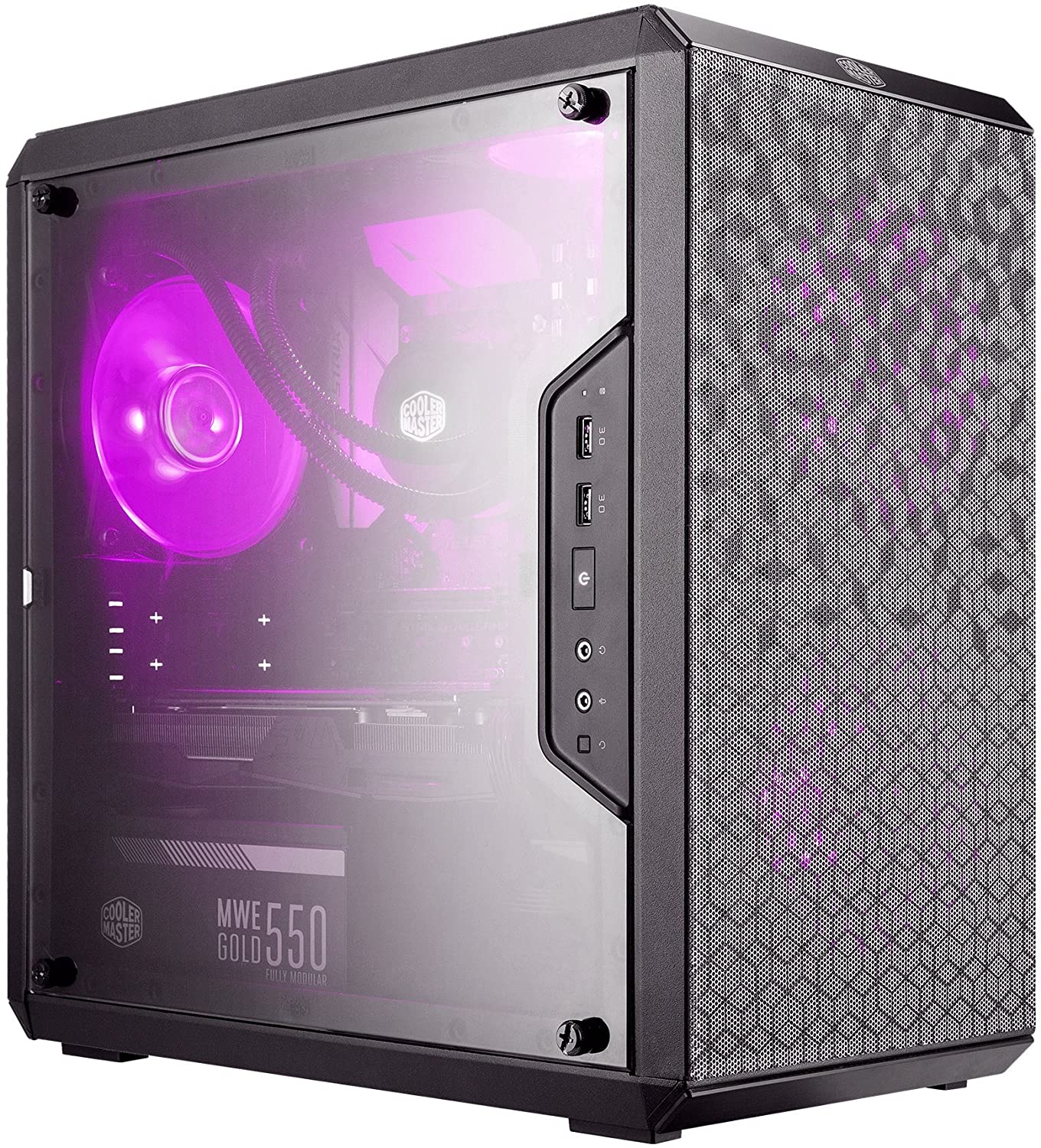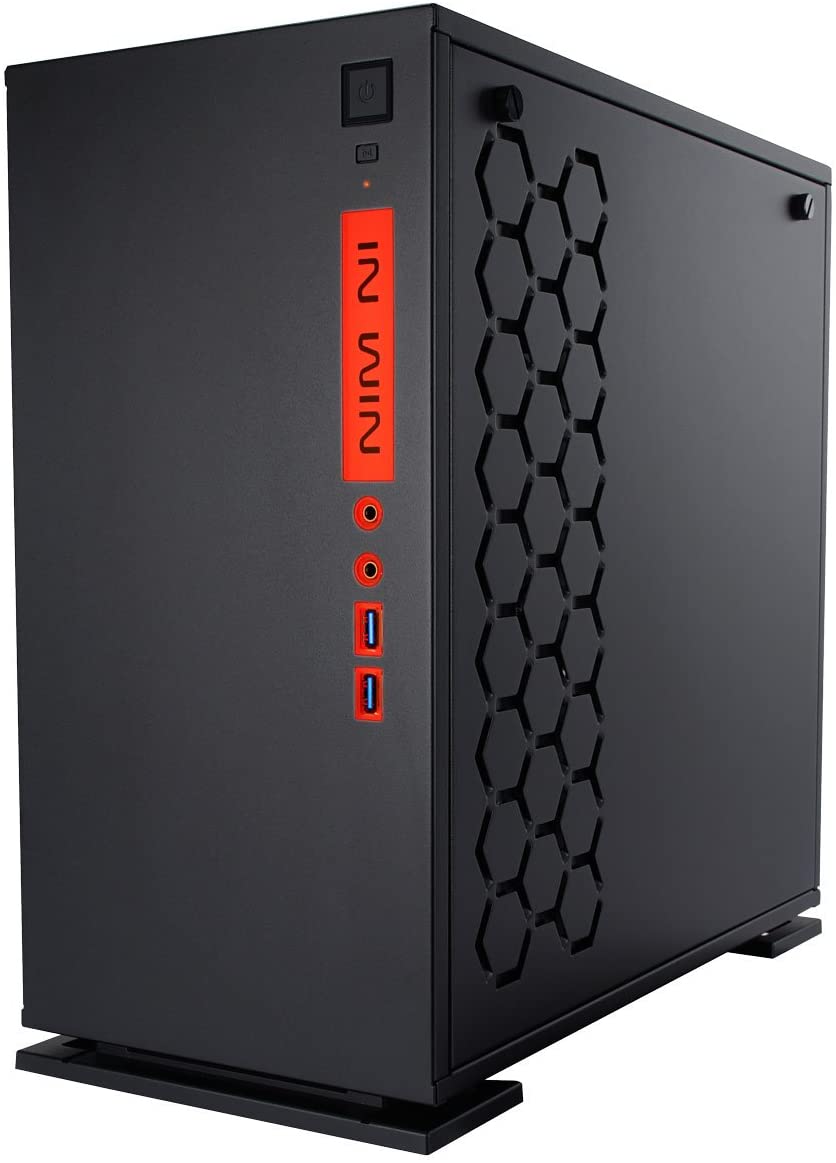However, selecting a micro ATX case for a compact gaming PC build is not as straightforward as it might seem. The thermal and airflow performance of the case has to be given paramount importance for obvious reasons. Other features such as cable management, drive support, fan and radiator support, front I/O, and aesthetics also have to be considered when making a purchase decision. Finally, the price has to be taken into consideration as well when buying the best micro ATX cases, as it would be unwise to spend hundreds of dollars on a case that provides fewer features than a normal ATX chassis.
The Best Micro ATX Case – Our Recommendations
Compact PC cases have a lot of quirks and features that potential buyers should keep in mind before making the purchase. These cases also face slight issues in terms of airflow, so don’t expect compact cases to be like the best cases for airflow. However, the positives are also significant as compact cases take up way less space in your setup and are generally cheaper as well. Keeping the factors mentioned above in mind, here are the 5 best micro ATX case options for compact gaming PC builds in 2022. NZXT is renowned in the industry for making some of the best PC cases with a focus on quality and design above all else. Their cases usually possess exquisite build quality and a clean design language that can be seen throughout their lineup. The NZXT H400 is their micro ATX offering from the current H-series lineup of cases, and it might be the best overall micro ATX case on our list. The bigger brother of the H400, the NZXT H700i, also shares the same design language as we noted in our NZXT H700i review.
The build quality of this case is top-notch as we have come to expect from NZXT. The construction is solid throughout and there doesn’t seem to be any spot in the frame itself that feels cheap or out-of-place. In terms of features, the H400 is stacked as well. It offers excellent cable-management options at the back of the motherboard tray as well as in the front with the stylish NZXT Cable Bar. The I/O of the case is fairly modern and minimalistic as well, which is in tune with the theme of the case in general. NZXT has also provided numerous dust filters which do their job perfectly well. The airflow of the case could have been better, however, as the front panel is rather restrictive by design. As far as looks are concerned, this is where the NZXT H400 really shines. It carries forward NZXT’s traditional minimalistic design language that is really popular among PC gamers nowadays. The case is available in multiple colors, but the standard white looks the best in our subjective opinion. The NZXT Cable Bar is also present in this micro ATX chassis, which improves the look of the interior even further. For this iteration, NZXT has gone with the full-size tempered glass side panel rather than the three-quarter size that is found in the NZXT H500 and H510 cases. Still, the design is impeccable and would match most minimalistic setups. The tempered glass application makes this one of the best tempered glass cases on the market as well. The NZXT H400 might not be the best performer in terms of airflow, but it offers a lot of other features that more than make up for that slight deficiency. The case has excellent build quality, stellar aesthetics, and even a reasonable price tag when compared with some other cases in its class. Phanteks has become a fan-favorite in the PC Gaming space in the past few years mainly due to their excellent cases that offer a unique design language. Most of their products also provide excellent value while also being packed with features, and the Enthoo Evolv mATX case is no exception.
The Phanteks Enthoo Evolv mATX is the micro ATX version of the standard Enthoo Evolv series and provides a similar design to its ATX counterpart. The build quality of this case is also top-notch just like the NZXT option, and it is packed with a whole host of features as well. The interior is spacious and easy to work in, while the cable management options are also plenty and convenient. The Enthoo Evolv mATX case comes with a 200mm fan at the front and a 140mm fan at the rear which are both nice inclusions. The I/O placement is a bit unorthodox, however, as the whole I/O panel is located on the right side of the case. Aesthetically, Phanteks has really hit the nail on the head with the Enthoo series and this mATX variant is no exception. The Enthoo Evolv mATX might just be the best looking micro ATX case on the market currently. It features a clean, industrial design that makes it look like it belongs in one of the Terminator movies due to its excessive use of metal and subtle hint of RGB lighting. The exterior of the case is made of aluminum while the rest of the body is made out of steel, which is a good decision by Phanteks. The side panel sits flush with the case and that improves the looks even more by providing a clean, minimalistic overall aesthetic. More PC Case Roundups: Best Full Tower PC Cases Overall, the Phanteks Enthoo Evolv mATX is a compact variant of a premium case that carries forward most of the high-end features from its lineup. It also looks visually impressive due to its impressive design language. Price is the only major downside of this case as even the mATX variant of this premium line is quite expensive when compared to other options in our lineup. The Thermaltake Core series is a value-oriented line of cases that aims mainly to maximize the bang-for-the-buck proposition of the buyer. The Core V21 is one such case that stands out from the pack due to its interesting design and practicality. This is a cube-shaped case that supports micro ATX and mini ITX boards, and can thus be used for compact PC builds. The cube shape also makes this one of the best cases for water cooling in the micro ATX form factor.
Despite being a compact case with an unusual design, it still possesses quite a big footprint with the dimensions of 320 mm x 336 mm x 424 mm (W x H x D). This does improve the practicality of the case quite a bit, but it also slightly defeats the purpose of a compact case in the first place. Still, the Core V21 is very easy to work in due to its cube shape and it has some unique features as well. The motherboard can be placed both vertically and horizontally which allows the user to personalize their build in the Core V21. The case also comes with a 200 mm fan at the front which is a nice inclusion by Thermaltake as it provides good airflow. As far as the looks go, this is where the Thermaltake V21 falls a bit flat. The cube-shaped design feels very old-school and outdated, and it cannot match the clean and minimalistic designs that are found on cases today. There is also a lot of negative space inside the chassis, and the lack of a PSU shroud is a glaring oversight that should not have happened considering the design of the case. The side panel of the case is also acrylic rather than tempered glass which gives it a cheap look. Safe to say that Thermaltake has prioritized functionality over looks for the V21. More PC Cases: Best Dual PC Cases The Core V21 from Thermaltake is not a bad case at all, in fact, it is one of the more reasonable and practical choices on our list. The cube shape definitely makes it the most practical micro ATX case on our list. It does have good airflow, excellent practicality, and great features which make it a really attractive value, however, the aesthetics of the case leave a lot to be desired. The MasterBox lineup of cases from CoolerMaster is aimed at maximizing the value proposition by providing good quality cases at affordable prices. The MasterBox Q300L is the micro ATX offering from this line that provides just the basics in order to get the job done. This case might just be the best value micro ATX case on our list today. You might also check out our Cooler Master MB511 Review which is a more reasonable ATX case from Cooler Master.
At first glance, the MasterBox Q300L might seem like a barebones case with no-frills, but it does have some good features to offer. The cable management structure of the case is satisfactory and the overall internal layout is also quite convenient. There is plenty of space inside the case to work in easily, and it offers some modularity as well. The case is quite compact but still, it can support a 240mm AiO radiator for cooling, or you can instead increase the substandard airflow by installing more fans in those spots. One big positive point is that full-size dust filters are provided for both the front and the top, which is a nice inclusion. The MasterBox Q300L does not offer anything special as far as aesthetics are concerned. Its overall look is quite basic, and the build quality is also unremarkable in many spots. The side panel has an interesting design because the I/O of the case is located on the left side as well, which gives it a unique look. The panel itself is acrylic and does not hold a candle to the more premium cases in our list, but that is to be expected given the price point. This case can also be counted as one of the best cases under $70 if you are limited to that budget. All in all, the CoolerMaster MasterBox Q300L is a budget-oriented offering that gets the job done at an affordable price point. Although it may not have the best airflow or the latest features, it is still good enough for a compact, micro ATX build without breaking the bank. InWin is a relatively new company that is slowly gaining popularity among the masses especially due to the design of their cases. People seem to like the overall design language of the InWin cases, and that has made InWin a serious player in the PC case industry over the past few years. The InWin 301 is a micro ATX case that aims to appease fans using its design rather than functionality. In white, it might also be one of the best white PC cases out there.
The case uses 1.2mm steel construction which does give it a rigid frame and decent build quality. However, one of the biggest downsides of the case is its atrocious airflow situation. By default, InWin does not include any fans with the casing which already puts it at a disadvantage to all other options in our list. It does support a total of five fans, however, which is a healthy number for a micro ATX case. Inside, the space feels reasonable and the cable management options are also decent, but the poor airflow of the case lets it down as a whole. As far as the design is concerned, it is pretty decent but nothing spectacular. The casing opts for a plain and minimalistic look, much like the NZXT H400, but does not pull it off quite as effectively as the NZXT offering. The side panel does sit flush with the frame which is a good design cue, and the front of the case has some accent styling which might be attractive to some potential buyers. However, it is clear that the looks of the case are nowhere good enough to balance the issues with the functionality and airflow. Related Read: Best Open-Air PC Cases The InWin 301 is an interesting option to consider if you are looking for a micro ATX case for your compact gaming PC build. The interior design earns it the title of the most unique micro ATX case on our list. It does some things right such as the interior layout and cable management but also falls flat in other areas such as airflow. However, it does have an interesting design that might just be attractive enough for you to ignore the other issues on this basis alone.
Micro ATX Cases vs. Mini-ITX Cases – Comparison
If you are in the market for a compact case of any sort for your new compact PC build, then you might find yourself contemplating between a mini-ITX case and a micro ATX case. Both of these case types are smaller than the typical ATX cases you find in the mid-tower format, but they actually serve slightly different purposes. If you want to choose between a micro ATX case and a mini-ITX case, then you should consider their differences first. Micro ATX cases, although smaller than standard ATX, are still larger than mini-ITX cases. Furthermore, micro ATX cases are actually cheaper than mini-ITX cases in most instances. This is because mini-ITX cases are specific cases that require a lot of R&D in terms of tooling and manufacturing, so they end up costing more due to their limited volume. Micro ATX cases are also more readily available for the exact same reason. Due to their larger size, micro ATX cases also tend to have better airflow than the smaller mini-ITX cases. However, on the flip side, the mini-ITX cases are typically much smaller than your average micro ATX case which can play in your favor if you want a really compact build. You would also want to opt for a mini-ITX case if you want a build with some sort of portability factor. For a more in-depth comparison of the two case types, you should definitely check out our guide on micro ATX vs. mini ITX cases. If you finally settled on micro ATX for your build, then be sure to pick one from our selection of the best micro ATX case options in the roundup above.
ASUS Announces Micro-ATX and Mini-ATX X670E Motherboards For AMD’s Zen4Micro-ATX VS Mini-ITX Cases | The Definitive GuideWhat is: TF (TransFlash) Card and How is it Different from Micro SD?Best 80mm to 200mm PC Case Fans
